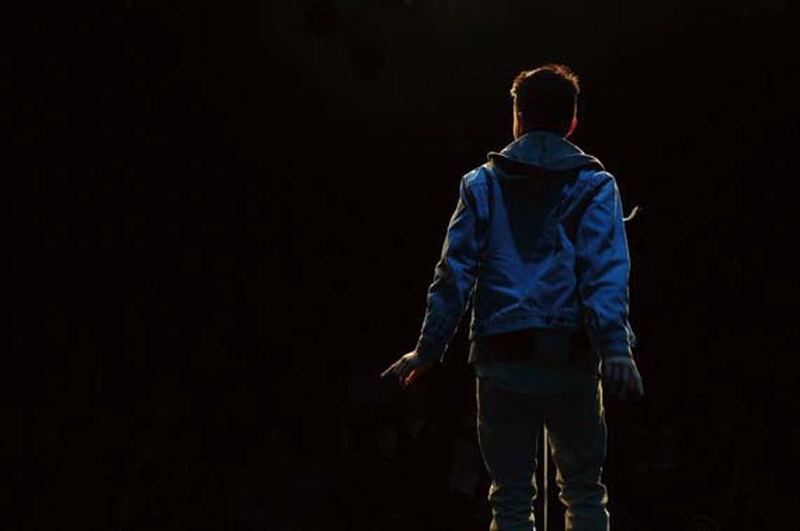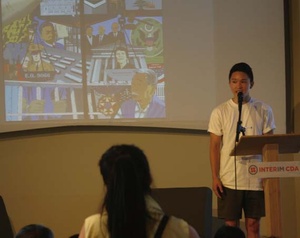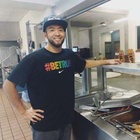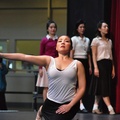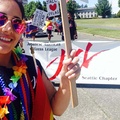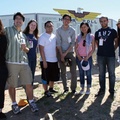Young Japanese people active in the Seattle area. Troy Osaki, who has a Japanese father and a Filipino mother, is expressing his opinions to society through poetry readings. After graduating from the University of Washington (UW) Department of American Ethnic Studies, where he majored in Asian American ethnic studies, he got a job teaching poetry locally, and is currently attending law school at Seattle University.
He began his creative endeavors when he was in elementary school. Aiming to become a musician, he played the guitar and bass and wrote song lyrics rather than poetry.
In high school, she participated in a poetry workshop in her English class and discovered "spoken word," an artistic performance of poetry or stories.
"I became very interested and asked a lot of questions at the workshop. I was told about open mics and poetry writing circles, and I was told about YouthSpeak Seattle, a place where young people can learn these art forms," Osaki recalls.
She learned how to write poetry and gained experience performing on stage, and while at UW she also played for the varsity team and the Seattle national team.
Originally, she started poetry readings because she found poetry interesting, but she also realized that poetry is not just a way to communicate one's thoughts and opinions, but also a way to help people think about their identity.
"To be honest, I didn't have many opportunities to learn about cultures related to me or my roots while I was growing up," Osaki reveals. "Through the process of writing poetry, I had more opportunities to think about myself, and I began to want to learn more and understand the cultures related to me. I now think that it is a privilege to have a culture that is related to my roots."
A fourth-generation Japanese-American from the area, he is also of Filipino descent and says he enjoys being American. "I want to learn more. I've been to Japan and the Philippines."
Although he studied Japanese at UW, his father, a third-generation American, revealed that he had little awareness of Japan. The situation has changed over the years, including the impact of World War II, and more fourth- and fifth-generation American families, including Osaki, are showing interest in Japan. He said he used community spaces such as libraries to participate in activities such as discussions about identity and Japanese Americans and screenings of related films.
His Japanese name, Susumu, is also used in the title of his collection. His works express his Nikkei identity in various ways. He sees art, such as poetry reading, music, and painting, as a way to promote intergenerational exchange.
"I want to continue to preserve the wonderful history of the first and second generation. I hope to learn a lot from them, and I hope the younger generation can work together to do something," says Osaki.
Japanese Americans have overcome a history of exclusion. Other races have faced similar experiences in the past and present. He says that while passing on history to the younger generation, he also supports other races and says, "It's important to come together to help each other."
"There are people in society who have more privilege than others. We must first recognize that privilege and help those who are discriminated against. We must help them have a voice, to be heard by everyone, and make their existence known."
Poetry readings are also an important tool for social activism. "I want to pay respect to my ancestors and continue to resist and take action for social justice," Osaki said with a serious look in his eyes.
*This article is reprinted from the October 20, 2015 edition of the North American Newspaper .
© 2015 The North American Post / Fumika Iwaswaki


